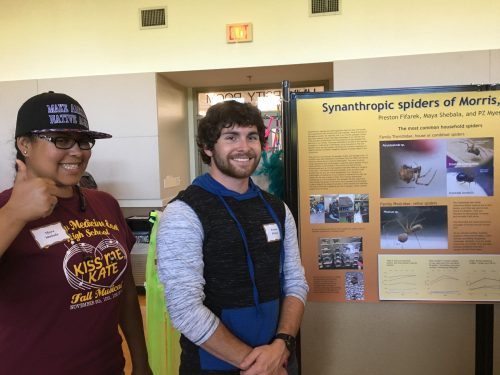I hate reading essays that I mostly agree with, but are poorly written and completely miss the most important point. I opened up this one because of the title: Ben Shapiro Is On The Wrong Side Of History. Then I find nothing but shallow nitpicking and a tendency to overlook the big flaw.
Here’s his summary of Shapiro’s recent book, which he promises to examine from a philosophical standpoint.
Ben’s proclamation at the start of the book is essentially this: reason alone, absent of God’s moral law — and more precisely — the absence of Judeo-Chrisitan [sic] moral law dooms our world to live in a meaningless abyss. Ultimately, he thinks without this it means the doom of society.
He also wants to argue our toxic political climate and divide can be boiled down to our societal rejection of these Judeo-Christian values.
Nowhere in this essay does he evaluate those critical words, “Judeo-Christian values”. What are they? Why is Islam excluded from the Abrahamic tradition? How do we decide whether a society is actually following these ill-defined moral laws? Shapiro just thoughtlessly assumes that his definition of what is moral is universal and historical and right and proper, and this essayist just goes along with him and assumes “Judeo-Christian” is a real thing. It’s infuriating.
He quotes from Shapiro something he says “essentially sums up his reasoning”.
“The USSR rejected Judeo-Chrisitan[sic] values and Greek natural law…and they starved and slaughtered tens of millions of human beings. The Nazis rejected Judeo-Christian values and Greek Natural law, and they shoved children into gas chambers.”
But he doesn’t follow through! Is not killing millions actually part of this fiction called “Judeo-Christian values”? The holy book they share praises war and slaughter, and has many examples of the same. The people who are historically Christian, and that belong to that similarly vaguely defined concept of “the West”, also murdered millions. Was King Leopold of Belgium “Judeo-Christian”? How about the British in the Opium Wars, or during the conquest of India? How do you then justify excluding Nazi Germany from the ranks of “Western Judeo-Christian” nations?
I wouldn’t argue that the Nazis were moral in the slightest, but they were definitely part of Western Civilization (is Shapiro going to argue otherwise?), they were definitely Christian, and the Germans are definitely rooted in Western/Christian philosophy — in fact, contributing largely to it — so how does that ignorant twerp get off claiming that Nazi philosophy was a rejection of the social values of a culture they were strongly part of?
Maybe a better approach would be to note that being Christian, Jewish, or Western does not make one good, by any means. That is the deep hole in the middle of Shapiro’s assumptions.






